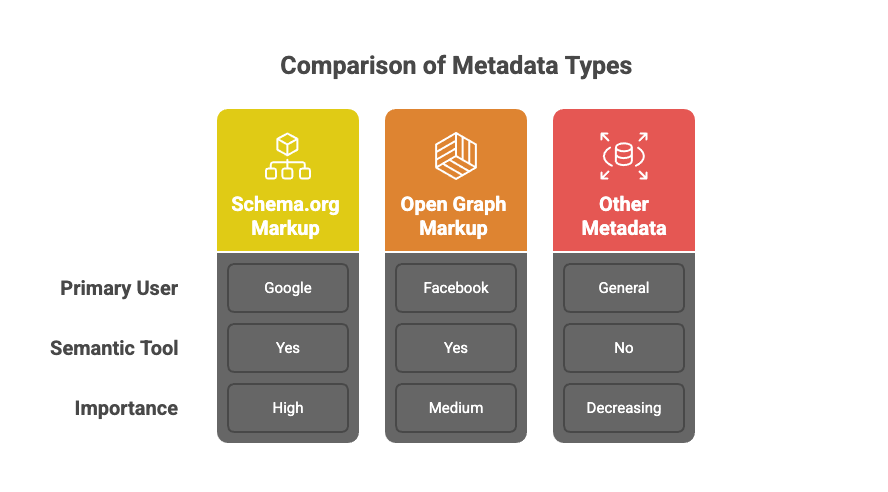Hey there, folks! Today we’re going to talk about Metadata. For those who don’t know, that’s just a fancy way of saying we’re going to talk about data that focuses on other data..
The topic’s neither as boring nor as useless as you might at first believe, particularly from an SEO standpoint. The truth is this: you must thoroughly understand the metadata on your website. This understanding is vital if you ever want to properly optimize your site.
“It’s critical that marketers understand the metadata that drives search engine optimization,” explains SEO expert Jill Kocher. “Without metadata, we weaken our ability to drive consumers from search engines to our sites.
The metadata we use most for SEO speaks directly to search engines. It does this from each page they crawl. This metadata communicates important information. It can also ask search engines to take a specific action.
Metadata, then, is the means by which websites ‘talk’ to search engines behind the scenes. It’s how your website identifies itself to Google, how it quantifies and categorizes itself on the SERP. You’re starting to see why it’s so important now, aren’t you?
Speaking broadly, there are three different types of metadata that come into play where search is concerned, according to Andrew Delamarter of Search Engine Watch:

3 Types of Metadata
- Schema.org Markup: As Google’s worked to make its search engine more functional for the end user, it has begun to move away from standard keyword-based search and into…something else entirely: semantic search. We don’t have time for a full explanation of semantic search. (There’s a great explanation here.) But the short answer is this: it’s based on entities. Entities are defined by traits. For example, an Apple is a fruit. It is also red. And it is food.
- Open Graph Markup: Open Graph is like Schema.org. Both are semantic informational tools. However, Facebook mainly uses Open Graph. Google mainly uses Schema. There’s some debate about which markup websites should use. But it’s likely safer to choose Schema. It’s more complete. It also gives more information to search engines.
- Other Metadata: Lastly, we have meta descriptions and title tags. We also have keywords. And there were Authorship and publisher meta tags, but they don’t work anymore. You probably know this type of metadata best. It’s less important now than it used to be. Semantic search is becoming more important every day. However, it probably won’t become completely unimportant.
Overall;
If you want to successfully optimize your site, you need to understand all three of the above types of metadata. That’s where we come in. Over the course of the next several weeks, we’ll take a more in-depth look at each particular color of metadata, and how they relate to SEO.
Our first topic will be Schema.org – look forward to it.




